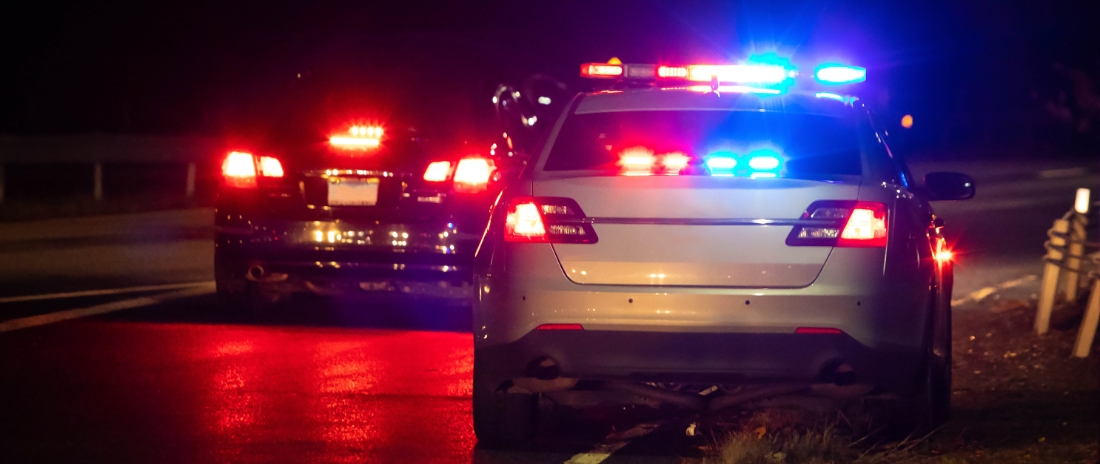New Florida Bill Criminalizes Various Driving Behaviors
In 2025, the Florida Legislature enacted House Bill 253, aiming to crack down on certain traffic offenses. The bill, titled, Offenses Involving Motor Vehicles, is a measure that significantly redefines how the state handles certain driving behaviors and vehicle-equipment violations. The law took effect October 1, 2025, and aims to deter intentional efforts to conceal license plates, obstruct automated enforcement systems, or mimic law-enforcement lighting. What had once been treated as minor or often overlooked infractions now carry the potential for arrest, prosecution, and in some cases felony convictions. By elevating these offenses, the Legislature hopes to improve roadway safety, support police investigations, and prevent technology-assisted evasion of traffic laws.
What Driving Behaviors are now Prohibited?
House Bill 253 criminalizes a range of conduct that interferes with the state’s ability to identify vehicles or that misrepresents a driver as law enforcement. The bill makes changes to Florida Statute § 316.2397 and § 843.08 regarding prohibited lights and impersonating a police officer. The bill targets the now harshly prohibited behavior of the usage of lights or lighting equipment that causes a vehicle to appear to be an emergency or law-enforcement vehicle. A driver who installs red-and-blue flashers or uses strobe lights to signal other motorists to yield could now face criminal charges. For example, a civilian who activates hidden grille lights at night to clear traffic might previously have been cited for improper equipment; under the new law this behavior can be treated as a felony because it creates confusion and endangers legitimate law-enforcement officers.
The act also criminalizes intentionally altering, covering, or obscuring a license plate or registration sticker. A common way drivers do this involves bending the plate upward to create glare, applying a tinted plastic cover over the tag, or using smudged adhesive on the registration sticker to prevent cameras from capturing the correct information. What may have once been dismissed as a minor equipment violation is now a misdemeanor offense when done intentionally. The state views these actions as deliberate attempts to interfere with toll enforcement, traffic cameras, or officer identification during a stop.
Another important conduct change involves possessing, purchasing, or using a device capable of blocking or distorting a license plate when recorded by a camera. A driver might buy an infrared frame designed to blur the plate when illuminated by an automatic license plate reader, or they might keep a can of reflective spray in the garage intending to apply it before driving through toll areas. Even if the device is never installed, the act of possessing such an item with the purpose of obscuring a plate can lead to charges. Likewise, using a device during a separate offense, such as fleeing a crash or avoiding police, can elevate the consequences dramatically.
The law further addresses individuals who manufacture, sell, or distribute devices intended to conceal or distort license plates. For example, imagine an online retailer offering mechanical flip-covers that rotate the plate at the touch of a button. Under HB 253, selling such a device in Florida can result in criminal liability. The Legislature emphasizes that cutting off the supply of these tools is just as important as penalizing the drivers who use them, since the availability of such devices makes camera evasion easier and more widespread.
What Devices are now Prohibited?
House Bill 253 specifically targets devices designed to interfere with the readability of license plates when viewed by cameras, scanners, or automated toll systems. These include mechanical devices such as flip-covers or rotating plate frames that conceal the tag at the moment a camera triggers. They also include electronic or optical devices such as polarized filters, angled plastic covers, and motorized shutters that distort or hide the plate under certain lighting conditions. In practical use, a driver might press a dashboard button to flip their plate down just before passing a toll gantry, or they might install a tilted frame that appears normal from behind but distorts the plate from the elevated angle of a red-light camera. The purpose of these devices is usually consistently used to prevent accurate identification of the vehicle.
A second category includes chemical or reflective treatments such as sprays that create excessive glare under flash photography, transparent films designed to confuse automatic license plate readers, or coatings that reflect infrared light. These products often appear clear or slightly glossy to the naked eye but become opaque or unreadable in camera images. Drivers may use them to avoid automated tolls or mask their identities when committing other offenses. HB 253 treats these devices as inherently harmful to traffic enforcement and public safety, regardless of how visible, or invisible, they might be during a routine traffic stop.
By criminalizing possession, sale, and manufacturing of these devices, the law aims to eliminate the tools used to undermine automated traffic enforcement. Florida’s roads rely increasingly on electronic systems for tolling, red-light monitoring, and investigative support. The Legislature has determined that widespread use of plate-obscuring technology threatens the integrity of these systems, prompting proactive restrictions on the devices themselves.
What are the Penalties for these Offenses?
The penalties under HB 253 vary depending on the specific behavior, but many of the reclassifications substantially increase the potential consequences. Before the bill’s passage, impersonating law enforcement from lights was only a first degree misdemeanor. Now, though, impersonating law enforcement by using prohibited lights or using a plate-obscuring device while committing another offense can result in a third-degree felony charge, exposing the driver to potential prison time and a permanent criminal record. The elevation of these acts into felony territory reflects the state’s position that misrepresenting one’s vehicle as an emergency vehicle or using technology to facilitate or conceal criminal conduct represents a serious threat to public safety.
Other offenses, such as intentionally covering or altering a license plate or registration sticker, were only treated as a non criminal traffic infraction under statute § 320.061 before the passage of the bill. Under the new statute though, this offense carries misdemeanor penalties. A second-degree misdemeanor can result in jail time, probation, and fines, but more importantly it shifts the conduct from a simple traffic matter into the criminal courts. Possessing a prohibited device, manufacturing or selling one is newly criminalized from this bill, and sellers face first-degree misdemeanor penalties. These penalties signal that Florida intends to send a clear message that even seemingly small attempts to hide a license plate or evade automated detection can have significant legal repercussions.
Common mistakes that could lead to accidental charges
Although House Bill 253 focuses heavily on intentional conduct, drivers may still find themselves facing charges for actions they assumed were harmless. One common situation involves aftermarket accessories purchased without understanding that they are prohibited. Many plate covers, tinted frames, and novelty brackets are marketed as legal “protective” accessories, even though they can distort a plate when viewed by a camera. A driver might install a lightly smoked plastic cover to protect the tag from road debris or sun fading, unaware that the same cover creates glare that prevents a toll or traffic camera from capturing the plate clearly. Even without any intent to evade detection, using such a cover may fall within the scope of the new law if it obscures the plate in practice.
Another issue arises when drivers modify their vehicles in ways that unintentionally mimic emergency lighting. Some aftermarket LED light bars, grille lights, or auxiliary lamps emit colors or flash patterns similar to those used by law enforcement. A motorist who installs bright white strobe-style fog lights for off-road use might not realize that activating them on a public road could create the appearance of an emergency vehicle, potentially triggering a criminal charge. The law does not require the driver to be impersonating law enforcement maliciously; it focuses on whether the equipment causes the vehicle to appear to be an emergency vehicle when used improperly.
Drivers may also face trouble when performing DIY repairs on license plates or registration stickers. It is not uncommon for adhesive tags to fall off or for a license plate to become bent after backing into an object. A well-intentioned driver might tape a sticker onto the plate using clear packing tape or bend a plate slightly to keep it attached while waiting for a replacement. Under the new law, however, altering or obscuring a registration decal, even accidentally, can lead to allegations that the driver intentionally interfered with its visibility. A person who uses a tinted temporary plate sleeve to protect a paper tag from rain could similarly be accused of obscuring the information if the cover reduces visibility from certain angles.
Another frequent source of accidental violations involves borrowed vehicles. Someone who lends their car to a friend or family member might not realize the vehicle already has an illegal plate-covering device or non-compliant lighting installed. If the borrower is stopped while driving, they may be the one charged despite having had no role in selecting or installing the equipment. Because the law targets possession and use, not ownership or installation alone, the person behind the wheel can be held responsible even if they were unaware of the modification.
Accidental misuse of temporary fixes can also create problems. For example, using bungee cords, tape, or improvised brackets to reattach a loose plate may unintentionally tilt it upward in a way that prevents cameras from viewing the tag. A driver rushing to secure a plate before a long commute might overlook that the angle creates glare or blocks part of the numbers. What appears to be an innocent temporary repair could expose the driver to accusations of intentionally obscuring the plate. The law assumes plate visibility must remain unobstructed at all times, making even short-term adjustments potentially risky.
It is important to understand these mistakes, and how they have the potential to violate the law, in order to protect yourself from accidental criminal charges.
Hire a Traffic Offense Attorney in Melbourne, Florida
If you or a loved one has been charged with Concealing or Altering a License Plate, or any other Traffic Offense in Melbourne, Florida or the surrounding area, it is important to hire a criminal defense attorney immediately. Germian Legal can provide the legal assistance you need to ensure your case is in the right hands, and you will be getting the best representation that you deserve.
Call (321) 775-3559 to request a free consultation.















Comments